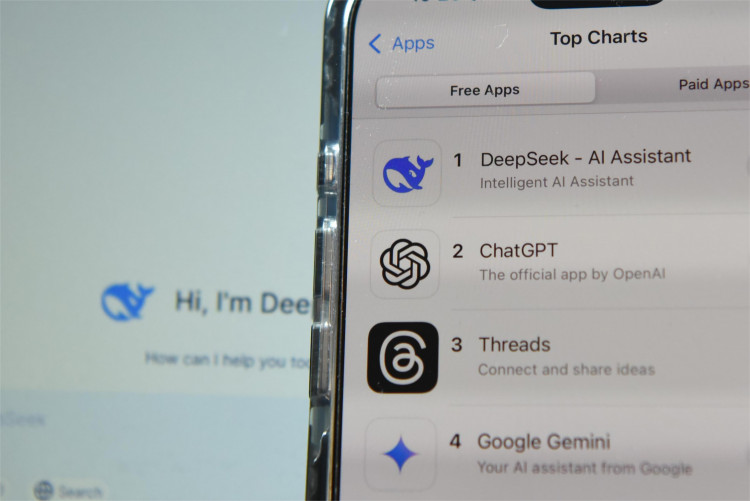OpenAI and its top investor, Microsoft, are investigating whether China's DeepSeek improperly leveraged OpenAI's artificial intelligence technology to develop a rival chatbot, marking the latest escalation in the ongoing U.S.-China AI competition.
The investigation follows reports that DeepSeek used a technique called "distillation" to extract knowledge from OpenAI's models. Distillation is a process where a smaller AI model is trained using outputs from a more advanced system, allowing it to replicate capabilities with fewer resources.
"We know [China]-based companies - and others - are constantly trying to distill the models of leading U.S. AI companies," an OpenAI spokesperson said Wednesday. "As the leading builder of AI, we engage in countermeasures to protect our IP [intellectual property], including a careful process for which frontier capabilities to include in released models."
DeepSeek's launch of its R1 model this month sent shockwaves through the tech sector. The model, positioned as an ultra-efficient AI system, claimed to match OpenAI's ChatGPT performance at a fraction of the cost. The news triggered a sharp market sell-off, wiping $1 trillion from the valuation of AI-linked U.S. technology stocks, including Nvidia, which suffered the largest single-day loss in U.S. history.
The fallout has drawn attention from Washington. The U.S. Navy has reportedly banned its personnel from using DeepSeek's applications due to "potential security and ethical concerns." White House Press Secretary Karoline Leavitt confirmed that the National Security Council was reviewing the implications of the Chinese firm's AI breakthrough.
Former President Donald Trump weighed in earlier this week, calling DeepSeek's rapid development a "wake-up call" for Silicon Valley and urging tighter protection of U.S. AI advancements.
David Sacks, the AI and cryptocurrency adviser to Trump, has openly suggested that DeepSeek's model may have relied on OpenAI's technology. "There's substantial evidence that what DeepSeek did here is they distilled the knowledge out of OpenAI's models," Sacks told Fox News. "One of the things you're going to see over the next few months is our leading AI companies taking steps to try and prevent distillation. That would definitely slow down some of these copycat models."
OpenAI has not directly accused DeepSeek of unauthorized model use, but the company has previously taken measures to block entities attempting to extract knowledge from its systems. Microsoft, which has invested $13 billion in OpenAI, declined to comment on the investigation.
DeepSeek's R1 model, which topped Apple's free app store rankings upon its release, has raised broader concerns about China's ability to challenge the AI dominance of U.S. firms. Unlike proprietary models from OpenAI and Google, DeepSeek's R1 is open-source, meaning developers worldwide can modify and build upon it freely.
Nvidia, which supplies AI chips critical for training advanced models, downplayed concerns about DeepSeek's impact on the semiconductor market.






